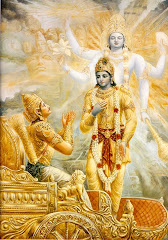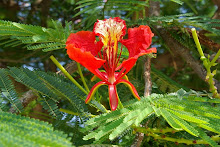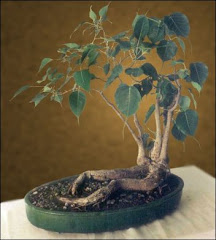Burma:
A nation At The Crossroads by Benedict Rogers is a Random House publication. Thank you
Random House for sending me a copy.
I had vaguely heard of the author's name before and must
say was quite happy to be able to read a book that dealt with the changing
times - in this neighbouring country of ours. As you are aware, Burma, now Myanmar,
is much in the news these days though not too long ago nothing much emanated
from there; news was controlled and the nation itself was off the international
radar.
A Snapshot, some snippets and a bit about the author:
Today, it is a linchpin country in the evolving geopolitics of Asia. It shares
borders with both China and India and in a way is the gateway to South-East
Asia as well. Burma has
an extraordinary wealth of untapped natural resources. So, needless to say,
that policymakers everywhere, especially in Beijing and New Delhi, are feverishly
planning ambitious infrastructure projects - pipelines, highways and railroads
- that will allow them to boost their trade between each other as well as with
Burma.
However,
Myanmar is saddled with two generations of chemistry professors who have never
conducted a proper laboratory experiment and mechanical engineers yet to handle
hands-on equipment. From MBAs to lawyers, doctors and accountants, shortages abound. Of
particular concern, is the lack of skilled technicians and workers, who will be
sorely needed if an investment boom does come. So, to my mind there could be a tremendous opportunity for India here. We
share a lot ... and not just our borders. There is a common history, culture, heritage and cuisine too. Buddhism came to Burma from ancient India, and the
beautiful Pagodas there ... stand testimony to our ties that dates back not
just centuries but perhaps millenniums.
Benedict Rogers is a writer and human rights advocate
specializing in Asia. He has traveled to Burma several times - to meet people,
who either by providing information or by sharing their own personal
experiences with him - contributed towards the writing of this book.
Rogers met with former political prisoners, members of
Aung San Suu Kyi's former 'Tri-colour' security guards, elected members of
Parliament, UN representative of the exiled government, '88 Generation
activists, Chin activists, Kachin activists, Karen and Arakan Rohingya
representatives, members of Burma's Women's League and Shan Women's Action
Network, among others. He also interacted with people outside Burma - who work
tirelessly for Burma's freedom and they have provided invaluable insights and
information. These (people outside Burma) also include past British, American,
Australian, Thai and Japanese diplomats who shared their recollections and
analysis; as well as many former British Ambassadors. He also accessed St.
Hugh's College (Oxford University) archive of press cuttings and other
information about Aung San Suu Kyi and Burma.
Rogers,
also the author of 'Than Shwe: Unmasking Burma's Tyrant', has been to almost
all of Burma's borders, spending time with internally displaced people (IDPs)
in the jungles of eastern Burma, meeting defectors from the Burma Army,
Buddhist monks who participated in the Saffron Revolution and other
dissidents and ethnic resistance leaders. He has sat with the 'Moustache
Brothers', courageously outspoken comedians in Mandalay, met some of Suu Kyi's
closest associates, including her lawyer, U Nyan Win, and the prominent
journalist and dissident U Ludu Sein Win. He finally met the lady - Daw Aung
San Suu Kyi herself, in January 2012. Rogers is effusive in his praise for her.
On 26 May
1989 the military regime in Burma changed the name of the country to 'Myanmar'.
The democracy movement and the leaders of the ethnic resistance organizations,
however, continue to use 'Burma', and have urged the international community to
do the same. Recently, there was a controversy involving Suu Kyi as well - if
you remember?
The
regime also changed the names of various cities and divisions. Rangoon became
'Yangon', the Irrawaddy Division became 'Ayeyarwady', Maymyo became 'Pyin Oo
Lwin', the Karen State is now called 'Kayin' and so on and so forth.
The Karen
leader - Padoh Mahn Sha Lah Phan, the then General Secretary of the Karen
National Union (KNU), the major resistance organization struggling on behalf of
Burma's Karen people, one of the largest of the country's ethnic groups - has already been shot dead by unidentified gunmen. He - unlike some other Karen leaders
that sometimes focused narrowly on their own specific Karen struggle saw the
bigger picture for Burma. Padoh Mahn Sha worked closely with the broader
Burman-dominated democracy movement and with the other ethnic nationalists,
without compromising his devotion to his Karen people, that is.
A nation
of approximately 55 million people, Burma is one of the most ethnically diverse
in South East Asia. Besides the Burman, Burmese-speaking majority, there are
seven major ethnic groups. These are the Karen, Karenni, Shan and Mon, who
inhabit eastern and southern Burma along the border with Thailand (although the
majority of Karens are in the Irrawaddy Delta, Tenasserim Division and
Rangoon); the Kachin in northern Burma along the border with China; the Chin,
in western Burma straddling the Indian and Bangladesh border; and the Arakan or
Rakhine, along the border with Bangladesh. There are numerous other sub-groups,
such as the Pa-O, Lahu, Lisu, Naga, as well as smaller groups such as the Wa,
the Chinese-speaking Kokang, and the Rohingyas.
Burma
became independent from British colonial rule in 1948, and after a decade of
democracy following independence in 1948, the civilian government was replaced
by military rule - led by General Ne Win in 1958, with the purpose of restoring
order to a nation torn apart by armed uprisings by the communists and several
ethnic groups. In 1960, fresh elections were held and the previous government
led by Prime Minister U Nu was returned to power. Two years later, however, Ne Win
launched a coup d'tat and the military have ruled the country ever since,
making it the world's longest-ruling military regime.
Albeit a regime
that brutalized and humiliated it's own people and nation. Child soldiers that
were recruited by the Burmese army (Tatmadaw) and sent to fight in the ethnic
areas, were fed on dire warnings by their senior officers about what the ethnic
resistance groups would do to them if they were caught. These child soldiers
really had no choice, if they did not join the army they would have been sent
to jail instead. These (child) soldiers too were subjected to cruel treatment,
including regular beatings for failure to carry out basic tasks, so much so
that life for them in the Burmese Army 'was like hell'. They witnessed attacks on
villages and saw civilians being rounded up and forced to work as porters for
the military. Some child soldiers that Rogers spoke with claimed that the
troops were under orders to burn, rape and kill and that 'there was no law'.
Some (like Kyaw Zeya) had been repeatedly warned that if he ever escaped and
were captured by the Karen, they would kill him. He believed these warnings,
but life became so intolerable that he decided to flee. 'I did believe that the
Karen were very bad, and I knew that if I escaped, I might face the Karen,' he
admitted. 'But I did not want to live.'
The
reality was diametrically opposed to the Tatmadaw propaganda though. Almost as
soon as he escaped, the Karen captured Kyaw Zeya, but instead of killing him,
they provided him sanctuary. With the Karen he told Rogers, he felt 'safe and
free and loved'. Other children tell similar stories. [Burma has perhaps the
highest number of child soldiers in the world proportionate to its population.]
Aung San
Suu Kyi is a very great leader, but our government does not like her very much:
These words caught me by surprise not because of the words themselves or the
sentiment they expressed, but because of who they were spoken by: a serving
military officer in Burma. 'She is in a
very difficult situation: he continued. 'But I pray for her: Discontent with
the current regime, and a desire for change in Burma is not limited to
students, monks and political activists. In the junior ranks of the military,
morale is believed to be so low that rates of desertion and defection have
reached worrying proportions for the regime.
Rogers
also tells us that astrology is taken extremely seriously among many Burmese
people, as are other forms of spirituality and superstition, including
numerology, and a belief in nats or spirits. At 4.20 A.M. on 4 January
1948 Burma regained its independence following little over a century of British
colonial rule, and several years of Japanese occupation. This early hour was
selected by Burmese astrologers - as the most propitious for the country's new
beginning. But at a party held to celebrate their impending liberty, someone
had reportedly predicted that the wrong date had been chosen for independence;
and that there would be nothing but bloodshed and fighting among themselves,
and they would not be able to do anything to change this. This person had
apparently done all the astrological calculations.
Yet
whether or not the astrological dangers of the date chosen for Burma's
independence mean anything, other factors contributed to a fragile birth. Just
six months prior to independence, on 19 July 1947, the man who had led Burma's
struggle against colonial rule, General Aung San, was assassinated, along with
half his cabinet. Burma's most competent leaders, who had been preparing to
take over from the British, were dead before the country had even become
independent.
Interestingly, Aung San predicted his own death when he
met the British Governor Sir Reginald Dorman-Smith in 1946. 'How long do
national heroes last?' Aung Sang reportedly asked. He then answered his own
question, saying: 'Not long in this country; they have too many enemies. Three
years is the most they can hope to survive. I do not give myself more than
another eighteen months of life.' Aung San is respected to this day in Burma as
the father of the nation and the founder of Burma's army; he was also the
father of Burma's current democracy icon, Nobel Peace Prize-winner Aung San Suu
Kyi.
Aung
San's assassination in 1947, when his daughter Aung San Suu Kyi was just two
years old, deprived him of the opportunity to see his dreams fulfilled and his
country of an exceptionally able and wise young leader. He was just thirty-two.
In his
meeting with Suu Kyi, Rogers informed her about this book and that he had
changed the title. Originally, this book was to be called 'Burma: A Captive
Nation'. She responded by commending the new title (Burma: A Nation At The
Crossroads) - saying that Burma truly is at a crossroads and people must shed
their status as captives. Suu Kyi went on to say that in her view, in the
debate over Burma's future, there are three types of people: those who are
unquestioningly euphoric and enthusiastic about the process of change; those
who are supportive of her decision to engage with the regime and in the
political process, but are cautious, skeptical and weighing the evidence; and
those who, for whatever agenda of their own, simply do not even want the
process to be tried. It is the second category that she values, and she made it
clear that she does not understand and has no time for the first or the third.
Besides
Rogers, another undercover journalist that has toured Myanmar several times and
has met Suu Kyi twice, has penned a new biography titled, 'The Lady And The
Peacock: The Life of Aung San Suu Kyi of Burma'. His name: Peter Popham.
Aung
San Suu Kyi's struggle against the government at the end of the 1980s was
characterized by a steely refusal to entertain the possibility of any
contact or dialogue with a morally tainted regime. Today, it is precisely this
path, the path of dialogue - difficult, messy and opaque - that she has chosen
to travel. The choices ahead will be tough, and they are likely to involve more
pragmatism than principle. (Indeed, the NLD's entry into parliament was briefly
marred by the activists' refusal to take an oath to the current
constitution - a point they were soon forced to concede.) At the end of
Popham's book, Gene Sharp, the famous theoretician of nonviolent regime change,
trenchantly observes that Aung San Suu Kyi "is not a strategist, she is a moral
leader. That is not sufficient to plan a strategy."
In April
1988, Suu Kyi returned from England to Burma - to nurse her sick mother (Khin
Kyi) ... but, within six months, found herself the unchallenged leader of the
largest popular revolt in her country's history. When the party she co-founded (NLD
- National League for Democracy) won a landslide victory in Burma's first free
elections (held in thirty years, in 1989), she was put under house arrest (in
July 1989) - and barred from taking office by the military junta. Suu Kyi has sacrificed
much - remaining under house arrest for so long and been denied contact with her family
too. She left her sons (Alexander and Kim) then aged 15 and 11 respectively, in the UK - to come
back to Burma, to care for her ailing mother.
Her
husband, Dr Michael Aris, was diagnosed with prostate cancer in 1997, it was
later found to be terminal. But despite appeals from prominent figures and
organizations, the Burmese junta refused to grant Dr. Aris a visa, on the
pretext that they lacked the facilities to care for him, and instead urged Suu
Kyi to leave the country to visit him. She was at that time temporarily free
from house arrest, but was unwilling to go, fearing that she would be
refused re-entry if she left. She did not trust the military junta's
assurance that she could return. [Aris died on his
53rd birthday on 27 March 1999.]
My two pence: Most of the positive moves (with respect to democratization)
made so far can be (sort of) traced or attributed to the personal initiative of the current President
Thein Sein (a former general); yet he is an elderly man whose health is clearly
not the best. He suffers from heart disease, and has paid a visit to Singapore
a few months ago - to get his pacemaker replaced. If he were to suddenly vanish
from the scene, it is entirely possible that hard-liners will seize the opportunity to
reassert themselves. The Burmese system remains
opaque and it is extremely hard to assess the strength of the support, rather
approval - for Thein Sein's somewhat reconciliatory course within the
regime - i.e., within the military as well as the military dominated Parliament. Very few are
likely to claim that the current president's reforms are irreversible.
Now though Aung San Suu Kyi is feted for her struggle, I would say she has lost valuable time and opportunity. Ideology and values are all very
good but one has to be pragmatic too; that is the nature of politics, of
governance and is the mark of a visionary leader. Instead of losing over two
decades - agitating and remaining under house arrest, a dialogue with the powers-that-be and with other political stakeholders may have been a better option; so
as to collectively agree on common points and arrive at a road-map, for the future. Networking and building bridges is important, and staying the course is most crucial. Positive change - the type that we want to see in society - does not happen
suddenly or by itself; the big picture is essentially made up of many many tiny pixels that has to be patiently and painstakingly put together. Perseverance and remaining focused is the key to achieving this.
Staying out of the political process only helps in creating a void, a political vacuum, and it does not
remain so indefinitely. Other forces rush in to fill the gap and one can only
speculate as to the nature of the forces that fills such voids. Non-participation
only makes difficult situations even more difficult; left unattended, wounds
start to fester and result in gangrene - if you know what I mean.
Suu Kyi's party offices are crumbling, there is little
organization, the leadership is old and archaic ... and she herself is 67 and not
in the best of health. Infusing new blood and ideas into the party, grooming them, turning
it into a close-knit unit, adapting to changing times and geo-political
scenarios, reworking the vision and the mission (of the party) and getting the rank and file to identify with it, engaging with various political groups within and with key international players ... is a gigantic task. Apart
from her, Burma does not have a tall leader, someone who is respected
cutting across identities. But most importantly, Burma lacks a visionary leader ... and there exists a lot of
push and pull from various directions.
There are a total of 664 seats in Burma's national parliament and Suu Kyi's party (the NLD) holds only 38 of them. It won a total of 43 seats in the much-trumpeted April 1 by-election, and that includes these 38 seats (in the national parliament.) That's a tiny fraction - translating to less
than 7% [6.4% actually.]
As
for how much maneuverability this would provide ... well, my guess is as good as yours!
Also there
are at least two generations of students lost, and empty classrooms gather
dust. It is a country severely handicapped
vis-a-via skilled and semi-skilled workforce, but blessed with immense natural
resources. And given their geography, there was and remains many possibilities.
About Suu Kyi, we have to see how things unfold. Being an icon
is much easier than being a hands-on leader. The latter has to try and
take along various shades of people and opinion ... and find common grounds - for
cooperation. For a leader, give and take, compromises and difficult choices are
the order of the day; one needs to get their hands dirty - so to speak. A leader has to be a strategist of the highest order, be clued into the goings-on - both
within one's shores as well as globally; for international politics is a very choppy
water ... not to speak of smoke and mirrors. There is always much more to it than
meets the eye, rather ... it is never really what it seems or appears to be.
My Verdict: The production quality of the book is very
good, it feels good to hold and that adds to the reading pleasure. The language is not too meandering or exalted, and hence is easy to understand. However the book jacket
cover doesn't quite capture the colours and flavours of Burma (or even Myanmar.)
Though the author may have spent time in Burma and spoken to
a cross-section of people, it is still very much a book through the eyes of a
foreigner, more precisely ... from a westerner's perspective. The language, the
observations, the inferences, the thought process, et al is clearly western.
The human rights abuses, the brutal military regime, the hapless people, the
sufferings, the poverty, the conflicts, the ethnic issues, the religious issues, the colour
of skin, the remarks about beliefs, etc; the viewing of everything in
black-and-white - is very unlike us. It is very unlike South Asia. Frankly, I was looking forward to
having a sneak peek at the various shades in between: the cuisine, the culture,
the customs, the attire, the rich heritage, the unique architecture, the colonial era, the
natural beauty, the crafts, the folklore, the humour and the repartee, the
music, the similarities despite the many differences, the festivals ... and the
small milestones, as well. Or at least a few of these, if not all of them. Instead the
book overwhelms the reader with ethnic conflicts, figures and statistics. Even the
pictures - in black and white - are so depressing.
I mean, I cannot even imagine looking at a majestic Pagoda (a
Buddhist Temple) - in black and white! Can you?
When I was studying, we had a fellow hostelite from Burma. Meaning:
there was a Burmese student staying with us in the hostel. She spoke decent
English, something that I would classify as Burmese English, the type we are likely to find being spoken across Burma - by ordinary citizens. But we had no difficulty in communicating with each other whatsoever.
And from what we observed, she was very organized and neat, simple and humble ... and
with a deep love for her motherland. She wore the Burmese dress: a long brightly-coloured wrap-around skirt or longyi, paired with a shirt or long blouse. I don't recollect
seeing her wasting food or water, and in the hostel we all ate the same stuff -
from the hostel kitchen, rustled up by South Indian cooks: rice, wheat
chappatis, sambar, some curry (consisting of potato, cabbage, tomato, carrots,
peas and the like), curd or raita, papad and pickles (for lunch
and dinner) - i.e., a vegetarian diet. And poori-saagu (puri-sabzi),
chappati-sabzi, idly-sambar-chutney, masala dosa, chitranna (lemon rice),
puliogre (tamarind rice), etc - for breakfast; and she quite liked it.
Different cuisine, you see; though the generous use of oil (in the dishes) did
pose a problem sometimes. But she would be ever smiling.
We chatted a few times; she was always polite, friendly and soft-spoken, never interrupting while the other spoke - very attentive and a good listener.
She also worked very hard at her studies. This, she did not take lightly, and
if you are an Indian, you would instantly know what I mean :)
Though much older to us, nearly forty, and in a
long-term stable relationship, she confided that they had not married yet as
they were both keen for their respective families to accept the match. And for
this to happen, they were prepared to wait. [Their families were taking their
time but not harassing them, nor were they barred from communicating with each
other; and both had immense faith in and respect for each other too.]
To my mind, if people of any country were to have similar or even
some bits of these above-mentioned values, open-mindedness, qualities, thoughts
and traits, a nation can and will be built - on strong foundations. Crossroads
or no crossroads! It is best that the people of Burma themselves resolve their
issues since they understand each other better, despite what may seem to
alien eyes - as differences and tensions. In spite of magnified ethnic
differences, there may be unknown reserves or undercurrents of tolerance and
commonalities; perhaps many if not all may want to put their collective
shoulders to the proverbial wheel. Let us wish Burma and her people all the
very best in their journey forward. May they build their nation - together!
Details of the book: Burma: A nation At The Crossroads/
Author: Benedict Rogers / Publisher: Random
House/ Binding: Paperback/ Publishing Date: 2012/ Genre: Politics/ ISBN-10: 1846043468/
ISBN-13: 978-1-84-604346-8/ Pages: 304/ Priced at: 12.99 pounds [Rs.1,134.90]
Photograph: The book jacket cover of 'Burma: A nation At The Crossroads'. Picture courtesy: link.















No comments:
Post a Comment